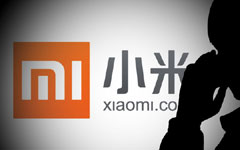Xiaomi's tablet aims to challenge Apple's iPad
By Gao Yuan (China Daily) Updated: 2014-05-16 07:14
 |
|
Cameramen focus on Xiaomi's new tablet at the device's unveiling on Thursday in Beijing. Kuang Linhua / China Daily |
"I am not surprised to see Xiaomi expand into the tablet market. However, unlike the time when Xiaomi entered the smartphone market, the tablet market now - especially in the low- and middle-end sectors - is crowded with a large number of powerful global brands and local vendors," said Nicole Peng, research director of Shanghai-based consultancy Canalys China.
|
 |
|
 |
"It will not be easy for another low-cost Android tablet to take significant market share."
Lei, 45, characterized by local media as China's Steve Jobs, spent 90 minutes introducing the hardware performances of the new tablet and a smart television product. But he very obviously avoided topics such as the company's widely debated "going global" plans.
Xiaomi signaled its intentions last month to tap into overseas markets, starting with smartphones, the company's strongest unit.
According to Canalys, Xiaomi is the world's sixth-largest smartphone maker in terms of shipments. Although strong local sales to low- and middle-end buyers helped to digest 97 percent of its total shipments, it is betting on emerging Asian markets for future sales growth.
Analysts believe the Chinese company may want to pick some less-developed markets to start its globalization plan.
Xiaomi's overseas strategy will not work for markets such as Singapore, where operators give a heavy subsidy for high-end smartphones, said Bryan Wang, China head of Forrester Research Inc, a global technology think tank.
"Exploring overseas markets means Xiaomi needs to know the local distribution channel and consumer behaviors very well. I believe Xiaomi could be working on that right now," said Wang.
|
 Check out Chinese tycoons' offices |
 China's 8 most outstanding entrepreneurs |
- NEA: End of the line for small oil refineries
- Xiaomi's tablet aims to challenge Apple's iPad
- Great Wall of chocolate
- Vietnam riots 'will hurt investment from China'
- Big piece of first Chinese jetliner completed
- Top 10 biggest auto makers of 2014
- New day dawns for labor rights in Pearl River Delta
- Beijing, Tianjin, Hebei to integrate customs















